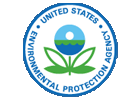Randy Coots, a water quality environmental specialist with the Olympia office of the Washington State Department of Ecology presented data to the Vancouver Lake Watershed Partnership today, relating the levels of specific toxins in fish tissue and sediment samples in Vancouver Lake and Lake River. Ecology has published another study entitled Vancouver Lake PCB’s, Chlorinated Pesticides, and Dioxins in Fish Tissue and Sediment [March 2007]. Similar studies were conducted in 1992 and 2002, resulting in listing of Vancouver Lake for failed water quality standards in PCB’s. Analyses from previous years showed that fish tissue samples exceeded National Toxics Rule thresholds for human health in both PCB’s and DDT. The National Toxics Rule maximums are listed as 5.3 ug/kg for PCB’s and 31.6 ug/kg for DDT. Studies from prior years showed levels reaching as high as 110ug/kg for PCB’s and 47 ug/kg for DDT in largemouth bass.
The 2007 study was conducted by Ecology and the Washington State Dept. of Health, with assistance by Clark County Public Works. The fish were harvested with electro-shock devices and netting. Sediment samples used the standard measurement from the top 2 centimeters of gathered sediment. Sixty-five fish samples were processed including common carp, large-scale suckers and largemouth bass. Fish tissue and sediment samples were taken from Vancouver Lake as well as Lake River. Samples consistently indicated higher toxic levels in fish from Vancouver Lake that were substantially higher than those from Lake River. In analyses of statewide data, toxicity levels from Vancouver Lake for PCB’s and DDT rank in the mid-range for twenty years worth of samples.
Anglers at Vancouver Lake typically catch other species of fish that were not tested by the state such as crappy, shiners and starry-eyed flounder,. However, common carp are known to be regularly consumed from Vancouver Lake, especially by people from the Russian and Asian community. The most recent results from Vancouver Lake indicate PCB’s in fish tissue to be 83 ug/kg for largemouth bass (almost 17 times national standard maximums) and as high as 185 ug/kg for carp (37 times the national standard maximums). Toxic levels were considerably lower in fish samples harvested from Lake River. PCB’s and DDT bio-accumulate in the environment, meaning they do not dissipate but grow worse over time.
Of the sediment samples taken from various locations in the Vancouver Lake system, those harvested from Burnt Bridge Creek contained considerably higher levels of toxins (including PCB’s and DDT) than any other samples taken in the system. When asked what these sediment results meant system wide, Mr. Coots offered that the data shows the noted toxins in Burnt Bridge Creek should be a priority. The sediment data ranks Vancouver Lake in mid-range for 251 samples taken over a 20 year timeframe. Burnt Bridge Creek is currently being considered for Ecology’s Total Maximum Daily Load Study from the southwest Washington Region, a study that would help identify the sources of contamination and recommend methods to address contaminant loads to the waterway.
Mr. Coots raises the question about the need for health advisories under these conditions. When national toxic standards are exceeded in fish tissues, why is there no automatic fish consumption advisory? Mr. Coots offered that he would not eat fish from Vancouver Lake, yet he stated that all health advisories must be issued by the Washington State Health Department. He was not aware if the Health Department would issue a health advisory to warn those who consume fish from Vancouver Lake. Currently, there is a statewide mercury advisory to warn against consuming largemouth bass, but this advisory is not posted for the benefit of anglers at Vancouver Lake. Any such advisory would have to be posted in multiple languages since many anglers at Vancouver Lake are non-English speakers.
Ecology’s recent study recommends that Vancouver Lake be monitored for PCB’s and chlorinated pesticides again in five years, that a water quality study be conducted for potential sources of these toxins, that these specific fish toxins found in Vancouver Lake should be addressed in a statewide assessment, and that a Total Maximum Daily Load Study for these toxins be conducted for the Lake.
A representative of the Lower Columbia Fish Recovery Board indicated her displeasure that the Vancouver Lake Watershed Partnership’s time was being taken with such highly technical discussion, and that future meetings should refrain from in-depth technical presentations. One would think that data pertaining to toxins in fish would be considered important by a Fish Recovery Board.
The Army Corps of Engineers is currently pursuing a federally sponsored project to improve fish habitat in Vancouver Lake. A feasibility study is being designed, with a target date of completion to be summer 2008. The Vancouver Lake project would be approved by US Congress.










![Washington State Water Quality Assessment [303(d)] Washington State Department of Ecology](http://www.rosemerena.org/home/wp-content/uploads/2009/03/ecy_logo.gif)

